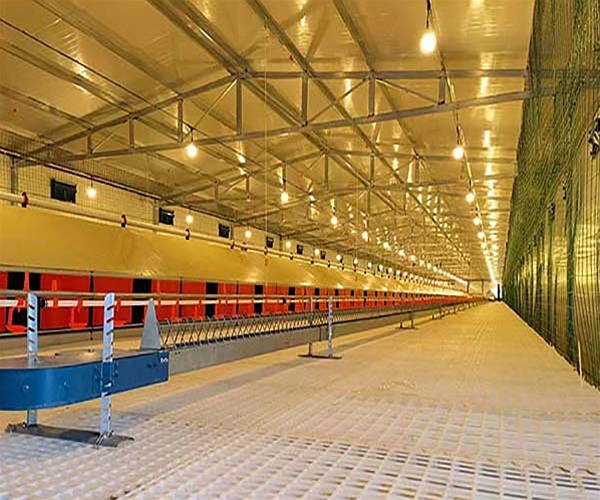Soft Egg Filter in modern egg production, automation and smart technologies are increasingly being applied. One key issue is how to improve efficiency, reduce labor costs, and optimize egg quality. Soft egg filters play an important role in this process. These filters help reduce the breakage and contamination of soft-shelled eggs, lower maintenance costs, and improve egg quality and production efficiency. In this article, we will discuss the working principle, benefits, and practical applications of soft egg filters.
What Is a Soft Egg Filter? How Does It Improve Egg Collection Efficiency?
A soft egg filter is a device used in automated egg collection systems. It separates soft-shelled eggs, broken eggs, and other abnormal eggs from healthy ones. Soft eggs are often caused by health issues or nutrient imbalances in hens. These eggs have thinner shells, making them more prone to breaking and contaminating other eggs. The soft egg filter efficiently separates soft eggs from normal eggs to maintain egg quality and improve production efficiency.
How Does a Soft Egg Filter Work? How Does It Precisely Separate Soft Eggs?
The working principle of a soft egg filter is simple and efficient. It consists of a soft egg sensor, a filter mesh, and a collection tray. As eggs pass through the conveyor or drum in the collection system, the soft eggs, with their thinner shells, are unable to pass through the mesh. Only intact eggs proceed to the collection system.
This precise separation prevents soft eggs from contaminating normal eggs, ensuring a high-quality product for market sales.
Five Major Advantages of Soft Egg Filters: Improving Efficiency and Egg Quality
1. Reducing Soft Egg Breakage and Contamination
Soft eggs are more likely to break and contaminate normal eggs during collection. This not only affects the egg’s appearance but also increases cleaning and processing time. The soft egg filter efficiently separates soft eggs, reducing breakage and contamination, ensuring clean eggs that meet market standards.
2. Increasing Efficiency of Automated Egg Collection Systems
Efficient operation of automated egg collection systems is critical for improving production efficiency. Soft egg filters prevent system malfunctions caused by soft egg breakage. For example, broken soft eggs can clog the conveyor system, disrupting production. With the use of soft egg filters, the egg collection system runs smoothly, boosting overall productivity.
3. Lowering Labor Costs and Reducing Human Intervention
In traditional farming, workers must manually remove soft eggs, increasing labor costs. A soft egg filter automates this process, reducing labor costs and human error. Farmers can focus more on health management and production optimization.
4. Improving Chicken Health Management and Early Issue Detection
The presence of soft eggs is often linked to health issues or nutritional imbalances in hens. By monitoring the number of soft eggs, farmers can quickly take action, such as adjusting feed formulas or improving the farming environment. Early detection allows for better health management and fewer diseases in the flock.
5. Lowering Equipment Maintenance Costs and Extending Equipment Lifespan
The contamination of equipment by soft eggs can increase maintenance costs and reduce the lifespan of egg collection equipment. By separating soft eggs, the soft egg filter reduces the strain on the system, lowering maintenance costs and extending the life of the equipment.
Applications of Soft Egg Filters: From Large-Scale Farms to Small Backyard Operations
1. Automated Egg Production Systems
In large-scale automated egg production, soft egg filters are especially important. These systems require smooth and efficient egg collection, which can be disrupted by soft egg contamination. The soft egg filter helps maintain the continuous, efficient operation of the system, improving productivity and reducing labor costs.
2. Small-Scale and Backyard Farms
Even small-scale farms benefit from using soft egg filters. They reduce labor costs, decrease maintenance issues, and ensure high-quality eggs. For family-run farms focusing on egg quality rather than volume, soft egg filters are an essential tool for improving competitiveness.
3. Health Monitoring and Disease Prevention
Soft egg filters not only separate abnormal eggs but also act as a health monitoring tool. By tracking the number of soft eggs, farmers can detect issues early, adjust their feeding strategies, and prevent disease. This helps improve the health of the flock and reduces disease transmission.
Future Trends: Technological Advancements and Innovations
With the advancement of automation and smart technologies, soft egg filters are expected to become even more intelligent. For example, the integration of IoT (Internet of Things) technology could allow soft egg filters to monitor soft egg production in real-time and adjust strategies automatically. Additionally, in the future, soft egg filters may integrate with big data analysis to help farmers predict potential issues and optimize farm management.
Conclusion
In conclusion, soft egg filters offer significant benefits in automated egg production systems. They improve efficiency, reduce labor costs, and ensure high-quality eggs. Soft egg filters help maintain smooth operations, reduce maintenance costs, and support healthier hens. As technology evolves, soft egg filters will continue to play a critical role in the modernization of egg production, driving efficiency and innovation in the industry.
Discover the success case of fully automated smart farming systems in egg production and how they can enhance efficiency and productivity.


